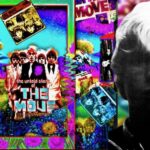
Indulgence, rebellion, and avant-garde inventiveness characterized the 1970s. The highs and lows of this pivotal period were reflected in rock music, which shaped a large portion of the cultural zeitgeist. Gambling and casino culture were notable inspirations among the various subjects that influenced the music and musicians of the era. For rock musicians, whose lives were as unpredictable and thrilling as the games they sang about, the draw of taking chances, the excitement of winning, and the anguish of losing struck a deep chord.
The Allure of Risk and Rock ‘n’ Roll
A theme that found rich footing in 1970s rock music, gambling has always been a metaphor for the gamble of life. Rock artists embraced the picture of casinos, card games, and the roll of the dice as mirror images of their own high-stakes life as the counterculture of the 1960s evolved into the decadence of the 1970s. The casino represented rebellion, excess, and the seductive prospect of striking it rich rather than only a place of entertainment.
Consider The Eagles, whose 1973 song “Desperado” catches the dual of risk and solitude. Though not specifically about gambling, the songs capture the essence of a gambler straying the path between glory and ruin. Likewise, Bob Seger’s “Still the Same” (1978) shows a person who lives for the excitement of the game. These songs show how gaming evolved into a more general metaphor for the existential hazards rock performers were negotiating.
The gaming attitude found in these songs speaks to the increasing popularity of online casinos in the digital era of today. Modern gamblers discover identical excitement in virtual platforms providing games of chance, just as the music of the 1970s explored the thrill of taking risks. Attracting elements like the casino deposit bonus, players are attracted to a world where they can test their luck and strategy from the comfort of home, therefore reflecting the ageless appeal of the gambler’s path shown in rock songs.
Casinos, Cards, and Chart-Toppers
There was more than just a parallel between gambling and rock. Many rock stars freely embraced the casino way of life, which frequently shaped their work. Songs like Motörhead’s “Ace of Spades” show this especially clearly. Published in 1980, the song typifies the gambling style and drew on the late 1970s. It became an anthem for risk-takers and thrill-seekers with songs honoring the surge of card game adrenaline and the notion of living on the brink.
Another noteworthy example is Elvis Presley’s “Viva Las Vegas,” which, although first published in the 1960s, found a second life in the 1970s as the gaming industry grew. Frequent visitors to Las Vegas, the King of Rock and Roll confirmed the cultural link between casinos and rock stardom by associating with the glitter and gloss of the Strip. The identical personas that 1970s artists embraced blurred the boundaries between their actual lives and the high-stakes personalities they had sung about.
There was more influence than just American rock. British musicians across the Atlantic also looked at gambling ideas. One such example is the 1972 Rolling Stones “Tumbling Dice,” which combines the band’s trademark swagger with the uncontrolled excitement of gambling. With images of dice and chance abound, Mick Jagger’s songs aptly express the attraction and risk of living life as a gamble.
Living the Gamble: Rock Stars and the Casino Lifestyle
For many rock stars of the 1970s, gambling was a way of life rather than only a lyrical inspiration. Attracted by the promise of fast money, opulent surroundings, and the excitement of high-stakes games, the decadent age saw artists swarming to casinos. Particularly Las Vegas became a playground for rock stars, therefore securing its status as a cultural landmark for the age.
Though not a well-known gambler, Freddie Mercury of Queen was renowned for his love of risk and flamboyant style. His larger-than-life attitude reflected the casino philosophy of all-in. The same can be said of Led Zeppelin, whose taste in excess permeated their leisure, frequently including visits to gaming hotspots.
This way of living had a darker side as well. The excesses of the rock scene reflected in gambling, which drove several musicians into debt and addiction. Although the glitter and glamor of the casino seemed to capture the carefree attitude of the time, the reality was frequently considerably more complex and exposed the two-edged character of the gambling way of life.
Gambling Themes in 1970s Rock Legacy
The influence of gambling culture on 1970s rock music leaves a lasting legacy, with its themes of risk, chance, and reward continuing to resonate universally. However, the 1970s remain unparalleled in how deeply these ideas were intertwined with the bold identities of the era’s rock artists. The use of gambling imagery gave the music an enduring edge, reflecting the rebellious and exploratory spirit of the time. Through both metaphorical lyrics and real-life indulgence in casino culture, the decade’s musicians crafted a timeless legacy. Even today, the “gambling attitude” remains a defining thread in the stories and songs of this transformative era, underscoring the lasting connection between risk and rock ‘n’ roll..



